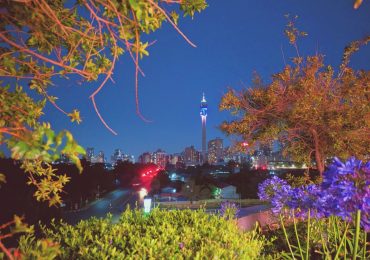Sri Lankan author Kanya D’Almeida has won the 2021 Commonwealth Short Story Prize—the world’s most global literature prize.
D’Almeida won the award for her story ‘I Cleaned The—’, a tale about domestic workers that speaks of ‘attempts by the poor and overlooked to voice their feelings’.
The Asia judge, Bangladeshi writer, translator and editor Khademul Islam, described the story as ‘a life-affirming story of love among the rambutan and clove trees of Sri Lanka—love for a baby not one’s own, love for a high-spirited elderly woman. Love found not among the stars but in human excrement. Literally. And all the more glorious for it.’
D’Almeida wins prize money of £5,000 (about R98 700). The five regional winning stories have all been published in literary magazine Granta, and are also available in a special print collection from Paper + Ink.
The Commonwealth Foundation announced D’Almeida’s win in an online award ceremony that featured readings from Zambian author Mubanga Kalimamukwento, Sri Lankan actress Ranmali Mirchandani, British actor Lyndsey Marshal, Jamaican author Kei Miller and Australian actors Francesca Savige.
D’Almeida, who is from Colombo, Sri Lanka, is the first Sri Lankan to win the overall prize and the second to win for the Asia region.
Chair of the Judges Zoë Wicomb said:
‘Congratulations to Kanya D’Almeida, whose winning story captivated the judges from the outset. In “I Cleaned The—” the short story form is fully exploited. Set in a Sanctuary for the Forsaken, “a place for people who have no people”, it brims with humanity, exploring the themes of love and death in an ingenious structure. In a frame narrative, Ishwan cares for a terminally ill fellow-inmate, and embedded within it is a story she tells her friend about her previous years of caring for a severely debilitated child. The narration is an accomplished interweaving of the two-time frames in which the stories artfully testify to love in its various forms. For all its scatology, its depiction of the unsavoury body in decline, “I Cleaned The—” deals in delicacy and the forbearance that love bestows. With a title that speaks of the unspoken and the unutterable, as well as attempts by the poor and overlooked to voice their feelings, D’Almeida appeals to both the heart and the mind of the reader in this portrayal of unspeakable injustice.’
D’Almeida said:
‘Winning the Commonwealth Short Story prize during this moment of global upheaval feels like a tremendous honour and an equally tremendous responsibility. It makes me question what it means to be a writer in these times, times when the human imagination might offer us our best shot at survival. I’ve long felt that fiction is the last ‘free’ place on earth in which to fully envision (and execute!) radical alternatives to the often dismal systems that govern us. To have won the prize for a story about two destitute, ageing women in Sri Lanka digging through the debris of their lives in search of a little dignity is more than a blessing—it’s a firm order from the universe to keep inventing ways for the powerless to gather together, giggle together, and win.’





